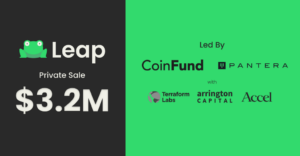Decentralized Autonomous Organizations, or DAOs, promise to deliver a more inclusive and scalable means of organizing, governing, and empowering transnational online communities. Aligned by common values and a shared mission, DAOs offer a governance alternative to today’s stale, homogeneous, and centralized legacy governance structures by deploying smart contracts to organize digital communities, streamline voting via governance token issuance and allocate a shared treasury. Innately global, DAOs may focus on investing, gaming, collecting or galvanizing a community around a shared ideology such as combating global climate change. With over $15 billion in assets under management as of November 2021, DAOs are quickly emerging as a powerful, influential community force. It is only a matter of time before their impact transcends the crypto industry to challenge historical organizational hierarchies. Meanwhile, across traditional finance, the Environmental, Social and Governance (ESG) movement continues to gain momentum as corporations seek to integrate social responsibility into their business models. While the “G”, or governance theme, generally focuses on increasing diversity and addressing conflicts of interest within legacy centralized governance structures, blockchain technology unlocks a new, decentralized alternative that promises to deliver a more inclusive and representative governance paradigm.
Belonging to and identifying with a group is a foundational human need. Our unique ability to form communities, share and divide up tasks, and identify with a common set of group values has been an essential part of the evolution and success of our species. Over the ages, mankind has tried and tested numerous governance mechanisms, but the lack of available governance technology has historically resulted in very hierarchical structures, where small groups exercise expansive influence. While monarchies and dictatorships immediately come to mind, even representative democracies restrict choice by delegating decision-making to a limited set of elites. Across the corporate spectrum, centralized decision-making is the responsibility of the CEO, and checks and balances are supposed to be enforced by the Board of Directors. Recognizing the shortfalls of this approach, the ESG movement evaluates governance factors that drive decision making in corporations. The traditional “G” framework considers the role and diversity of the Board of Directors, compensation and oversight of top executives, and the identification of conflicts of interest. Unsurprisingly, scholarly research suggests that there is a robust statistical correlation between governance factors and future operating performance. In fact, there is evidence that suggests corporations that improve their governance mechanisms are able to increase their firm’s value by 10–12%.
In principle, DAOs allow global groups of people of virtually any size to come together, form communities, and collectively act for a unified purpose. Fully decentralized community consensus, not the CEO in isolation, drives decision-making and allocation of resources. Within DAOs, decisions are transparently governed by proposals and clearly defined voting rights using open source code. As a result, all members have a voice that is protected by the strong, immutable guarantees of the blockchain. Online communities may be instantaneously formed and managed via DAOs in a transparent and auditable way. Smart contracts manage the treasury, and rules may be changed only by the vote of token holders. With this dynamic and inclusive governance, the community has the ability to continually evolve and experiment. For example, if the DAO decides to shift to a ranked choice voting system, the community can quickly and efficiently implement the change. In effect, centralized decision-making is replaced by community consensus that is mechanically governed through immutable code.
DAOs are a new frontier poised to democratize and decentralize governance. The first DAO, “The DAO”, was launched in May of 2016. Today, DAOs are quickly proliferating. According to deepdao.io, by November 2021, total assets under management (AUM) held by DAOs stood at $15bn, a $6.5bn increase in the last month! Despite this growth, only 48 DAOs have treasuries over $1mm, and only 58 have more than 100 members. Advances in DAO technology are already unlocking new and exciting capabilities. For example, the “rage quit” feature introduced by MolochDAO in 2019 allows DAO members to exit the DAO with their individual share of the treasury if a member disagrees with a DAO decision, allowing greater flexibility by balancing individual preferences. This mechanism prevents the DAO from exercising “capital capture” and forbids any small group from exercising dictatorial control. Moreover, new capabilities introduced on the Orca Protocol and Gnosis Zodiac applications allow DAOs to depart from monolithic decision-making by introducing a delegation capability akin to sub-committees in governance structures today. Clearly, the DAO story is only just beginning.
In order to reach their full potential, DAOs will need to navigate a dynamic array of legal uncertainties. Similar to other blockchain innovations, existing law and regulation has struggled to keep up with the pace of technological advancement, and DAOs do not neatly reconcile with legacy legal structures. For example, through a traditional legal lens, DAOs could potentially be considered general partnerships under U.S. law. Under this framework, all DAO members could be jointly and severally liable for legal action taken against it. To solve these challenges, some DAOs, like FlamingoDAO, have looked to limit the liability of their members by wrapping the DAO in a Limited Liability Company (LLC). Syndicate and Tribute Labs both provide legal tooling that allows for a DAO to be blended with a traditional corporate structure, limiting the risk potential for members. However, wrapping a DAO in a traditional framework stifles some of the benefits and value propositions of DAOs — such as having organizations with a large number of participants. Additional challenges include navigating anti-money laundering (AML) and Know Your Customer (KYC) requirements where the organization is decentralized and participants may be anonymous. Finally, unlike other areas of blockchain technology with some limited regulatory guidance, the tax status of DAOs is a largely unexplored space by regulatory bodies. In order to make DAOs shine and realize their full potential, new legislation is needed that keeps pace with the innovation that DAOs deliver.
As the DAO space continues to evolve and address these challenges, it is certain that the blockchain innovation brought forward by DAOs will play an important role in enhancing the “G” in ESG. By offering an alternative to the existing centralized framework, ESG initiatives have a lot to learn from DAOs.
Christopher Perkins is President of CoinFund.
Christian Murray serves on the research team at CoinFund.
About CoinFund
CoinFund is a diverse, leading blockchain-focused investment firm founded in 2015, based in the U.S. Collectively, we have an extensive track record and experience in cryptocurrency, traditional equity, credit, private equity, and venture investing. The CoinFund strategies span both liquid and venture markets and benefit from our multidisciplinary approach that synchronizes technical cryptonative aptitude with traditional finance experience. With a “founders first” approach, CoinFund partners closely with its portfolio companies to drive innovation across the digital asset space.
Source: https://blog.coinfund.io/daos-what-the-esg-movement-can-learn-from-blockchain-governance-a7d0c7dbccde?source=rss----f5f136d48fc3---4- 100
- 2016
- 2019
- 2021
- According
- across
- Act
- Action
- Additional
- address
- All
- allocation
- Allowing
- already
- AML
- anti-money laundering
- Anti-Money Laundering/AML
- applications
- approach
- around
- asset
- Assets
- autonomous
- available
- Beginning
- benefits
- blockchain
- blockchain technology
- board
- board of directors
- business
- capabilities
- ceo
- challenge
- challenges
- change
- Checks
- Climate change
- code
- CoinFund
- Collecting
- Common
- Communities
- community
- Companies
- company
- Compensation
- Conflicts of Interest
- Consensus
- considers
- continues
- contracts
- Corporations
- could
- credit
- crypto
- Crypto Industry
- cryptocurrency
- DA
- DAO
- DAOs
- decentralized
- Decision Making
- deploying
- digital
- Digital Asset
- Diversity
- dynamic
- effect
- emerging
- environmental
- equity
- ESG
- evolution
- example
- executives
- Exercise
- Exit
- experience
- experiment
- factors
- Feature
- Finally
- finance
- Firm
- First
- Flexibility
- Focus
- follow
- form
- Forward
- Framework
- full
- future
- gaming
- General
- Global
- governance
- Group
- Growth
- having
- holders
- HP
- hr
- HTTPS
- ia
- Identification
- identify
- immediately
- Impact
- implement
- important
- Increase
- individual
- industry
- influence
- Innovation
- interest
- introduced
- investing
- investment
- isolation
- issuance
- IT
- Know Your Customer
- KYC
- large
- Law
- leading
- LEARN
- Legal
- Legal Action
- Legislation
- liability
- Limited
- Liquid
- LLC
- looked
- Making
- management
- mankind
- Markets
- Matter
- medium
- Members
- mind
- Mission
- models
- Momentum
- more
- movement
- needed
- New Legislation
- numerous
- offer
- offering
- online
- open
- open source
- operating
- order
- organization
- organizations
- organizing
- Other
- paradigm
- participants
- partners
- partnerships
- People
- performance
- Play
- portfolio
- powerful
- president
- private
- provide
- record
- Regulation
- regulatory
- Requirements
- research
- Resources
- Risk
- rules
- scalable
- set
- Share
- shared
- shift
- shine
- similar
- Size
- small
- smart
- Smart Contracts
- Social
- SOLVE
- Space
- Status
- Story
- strategies
- strong
- success
- system
- tax
- Technical
- Technology
- theme
- Through
- time
- today
- today’s
- together
- token
- top
- track
- traditional
- traditional finance
- treasury
- u.s.
- unique
- unlocks
- value
- venture
- Voice
- Vote
- Voting
- What
- within







